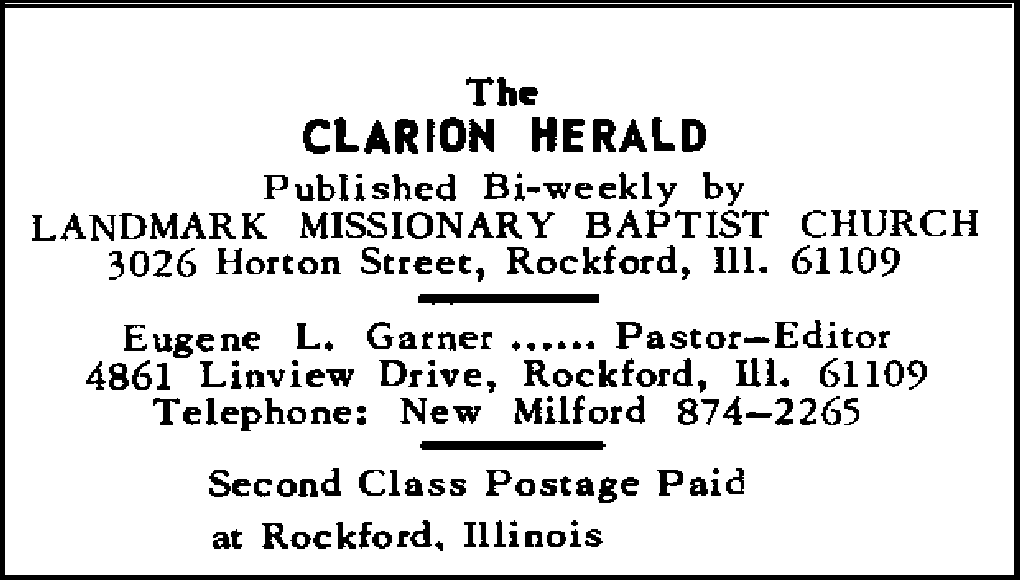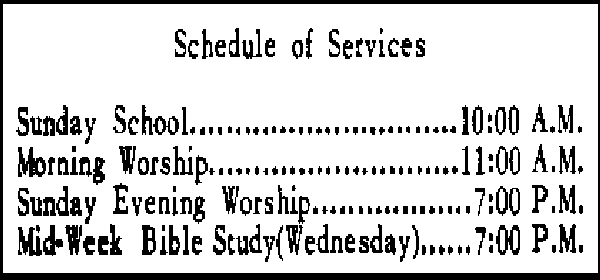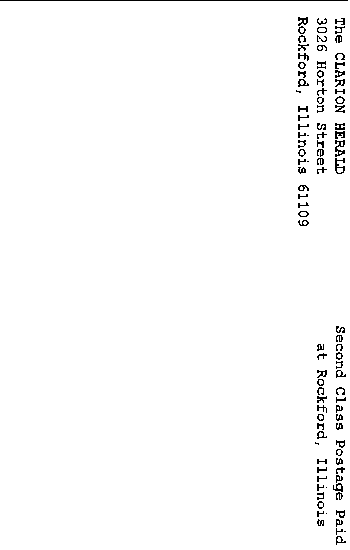
|
 |
 |
 |
|
 
|
|
|
BIBLICAL USAGES OF "FIRE"
"Much study is a weariness of the flesh" wrote the wise man, (Ec. 12:12). Nevertheless, one who desires to teach others must "be diligent" (study) so as to "rightly divide" the word of truth, (2 Tim. 2:15). Doubtless, there are times when preachers should follow Paul's admonition to the Thessalonians; "Study (labor) to BE QUIET"; (I Th. 4:11) until they have so prepared heart and mind as to give a consistent exposition of the Scripture IN CONTEXT.
There are times when a word is used in SEVERAL different ways. When such is the case, the mere "reference runner", who assumes that he may fit any use of that word into His particular context, will end up confused and confusing. Hence, the necessity for diligent endeavor to determine the SENSE of each usage before various usages are combined to instruct others.
Consider the word "FIRE" which, in its New Testament usage, comes from the root "pur".
1) It is used of a literal, burning, consuming flame, as seen in Gehenna -- outside the Holy City.
2) It illustrates the divine holiness which consumes all that is
|
|
|
|
inconsistent with its nature -- and is manifested in such divine indignation as devours the adversary, (Heb. 10:27; 12:29; Rev. 1:14; 2:18; 10:1; 19:12; etc.).
3) Likewise, His angelic ministers are symbolized by "flames of fire", (Heb. 1:7).
4) It is also used as a symbol of the Holy Spirit as He came down to empower the church for the fulfilling of its task, (Acts 2:3-4).
5) Again, it symbolizes the "trials" of faith whereby the people of God are tested, purged and prepared for a more exceeding weight of glory, (I Pet. 1:7; 4:12; comp. Ezek. 22:20; Mal. 3:2-3).
6) It is a symbol of DIVINE JUDGMENT whereby the works of God's people will be tested for quality at the judgment seat of Christ, (I Cor. 3:13-15; comp. Num. 31:23); it also suggests the outpouring of divine wrath upon sin, unbelief and every form of ungodliness, (2 Thes. 1: 8-9).
7) It describes the sort of torment that awaits all who reject the love, grace and mercy of God, in what the Bible calls "hell", (Matt. 5:22; 13:42; 25:41; etc.).
8) It also describes the uncontrolled human tongue as capable of igniting a mighty conflagration of
|
|
|
|
|
Page - 2
destruction. Fueled by hell, it defiles the whole body -- spreading its undisciplined, passionate recklessness to all the lower elements of man's carnal nature, (Jas. 3:6).
9) Finally, it is used of the method whereby the present evil order of things will be destroyed and "new heavens and a new earth" shall be prepared for the saints, (2 Pet. 3:1-13).
Though these examples do not exhaust the usages of "fire" in the Word of God, they at least demonstrate the necessity of careful diligence -- even in the matter of comparing Scripture with Scripture. Failure to recognize this principle can be disastrous!
-- Eugene L. Garner
*************
"Cherubim and Seraphim
Veil their faces with their
wings;
Eyes of angels are too dim
To behold the King of kings,
While they sing eternally
To the Blessed Trinity!"
|
|
|
|
WHAT DOES DEACONSHIP INVOLVE?
Our word "deacon" comes from the Greek "diakonos". It is one of several New Testament terms which deal with "service". It views the servant in relationship to his WORK, whereas "dulos" (bondservant) views him in relationship to his Master. A New Testament "deacon" may perform servile labor, or he may be an attendant -- rendering free service without regard to its character. It has been suggested that this word is closely related to "dike" which means "to pursue" or "to hasten after" -- as of a runner. Blessed is the church, and pastor, in their relationship to deacons who are hastening to accept the most menial duties as they render joyful, wholehearted service to their Lord!
Because the deacon's office has so often been perverted, it should be filled with great care. It is NOT designed to honor a man, nor to endue him with any special authority over his brethren. No Scripture suggests that the Lord or His apostles ever intended that deacons: 1) Claim the sole right to serve at the Lord's table; 2) Act as a sort of "screening committee" to determine what should be brought before the church in her business meeting; or, 3) Be considered "guardians of the pulpit -- always objecting to the preaching of anything they do not yet understand, or dragging their feet to prevent the pastor from "running away with things".
The office of "deacon" is a subordinate office -- designed to assist the spiritual leader of the flock: 1) Relieving him of
|
|
|
|
|
unnecessary burdens; 2) Stopping complaints against him (not instigating them); and, 3) Enabling him to concentrate his energies on those things to which God has called him ... especially to the study of the Word and to prayer, (Acts 6:2-4).
Certain spiritual qualifications must be met before one is ordained to the office of deacon in a New Testament church. He must NOT be double-tongued or deceitful, addicted to wine, or motivated by a desire for material gain or carnal recognition. He MUST, positively, be: wise, honest, of good report, sober-minded and stable. There must be a consistency between what he professes to believe ABOUT God and the way he WALKS BEFORE GOD. He must have a faith that is faithful; a belief that behaves. He must be a "one-woman-man" who rules his household well. If he is not already a man of high character, a leader of men, it is highly doubtful that the church's ordination will ever make him such.
The WORK of a deacon is important -- though it is ever to be rendered under the pastor's careful and loving direction. Deacons cannot afford to forget that their pastor is the spiritual leader of the flock. He must one day. give account for the souls of all. Thus the deacons, along with all other members, owe him their love, respect, loyalty, prayers, financial support and loving obedience.
There is never any reason why either pastor or deacon should show discourtesy or resentment toward the other. Each has his own work; they are fellow-laborers. The Lord
|
|
|
|
Page - 3
has appointed to each one his work; the important thing about either "stewardship" is that a man be found faithful in the work committed to him.
The deacon, who basically renders service in the material realm, will as certainly be rewarded for fidelity in his task as will the pastor whose basic ministry is in the spiritual realm. Thus, the deacon who faithfully looks after the needs of the widows, orphans, sick and needy (and the facilities connected with our assemblage) will so magnify his office as to cause others to esteem and respect its sanctity.
May the Lord bless those faithful "deacons" who render a VITAL service in the house of God! E.G.
CALVARY CROSS FELLOWSHIP
Pastor John L. Coleman and the Calvary Cross Missionary Baptist Church, of St. Louis, are planning a Fellowship Meeting for April 25-26. They extend an invitation and Christian WELCOME to brethren everywhere. As usual, their hearts and homes will be open -- proving themselves gracious hosts and fellow helpers in the truth.
This meeting will begin on Friday evening and continue through the day on Saturday. Let us all pray, with them, that this will be such a constructive meeting as will exalt the name of Christ, respect His order and result in the furtherance of the Gospel.
-- the Editor
|
|
|
|
|
WHAT THEN??
When all the great plants of our
cities,
Have turned out their last finished
work;
When our merchants have made the
last bargain,
And dismissed the last tired
clerk;
When our banks have raked in the
last dollar,
And have paid out the last
dividend;
When the Judge of the Earth says,
"Close up for the Night!"
And asks for a Balance; WHAT THEN?
When the choir has sung its last
anthem,
|
|
|
|
And the preacher has said his
last prayer;
When the people have heard their
last sermon,
And the sound has died out on
the air;
When the Bible lies closed on the
pulpit,
And the pews are all empty of
men;
When each one stands facing his
record,
And the Great Book is opened,
-- WHAT THEN?
When the actors have played their
last drama,
And the mimic has made his last
fun;
When the movies have flashed the
last picture,
And the billboard displayed its
last run;
When the crowds seeking pleasure
have vanished,
And have gone into darkness
again;
And the world that rejected its
Saviour,
Is asked for a reason, WHAT
THEN?
When the bugle's last call sinks in
silence,
And the long marching columns
stand still;
When the captain has giv'n his last
order,
And they've captured the last
fort and hill;
When the flag has been hauled from
the masthead,
And the wounded afield have
checked in;
When the trumpet of Ages is sounded
And we stand up before Him,
WHAT THEN?
|
|
|
|
|
 |
 |
 |
|




